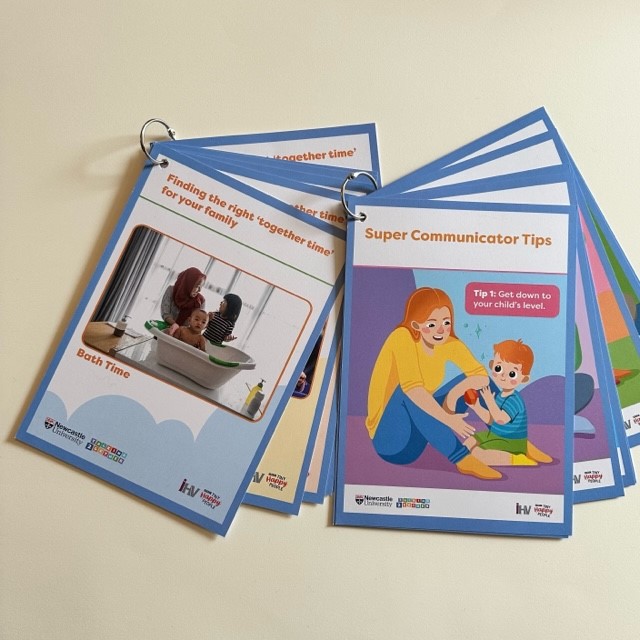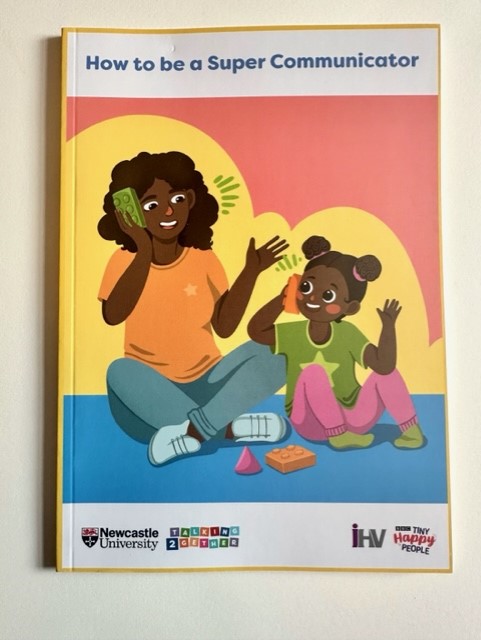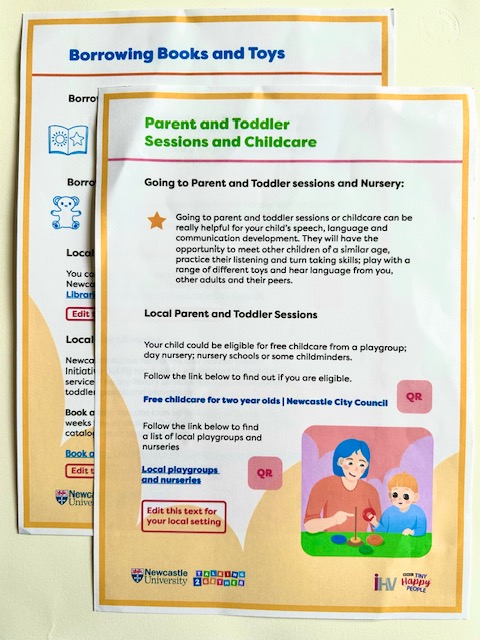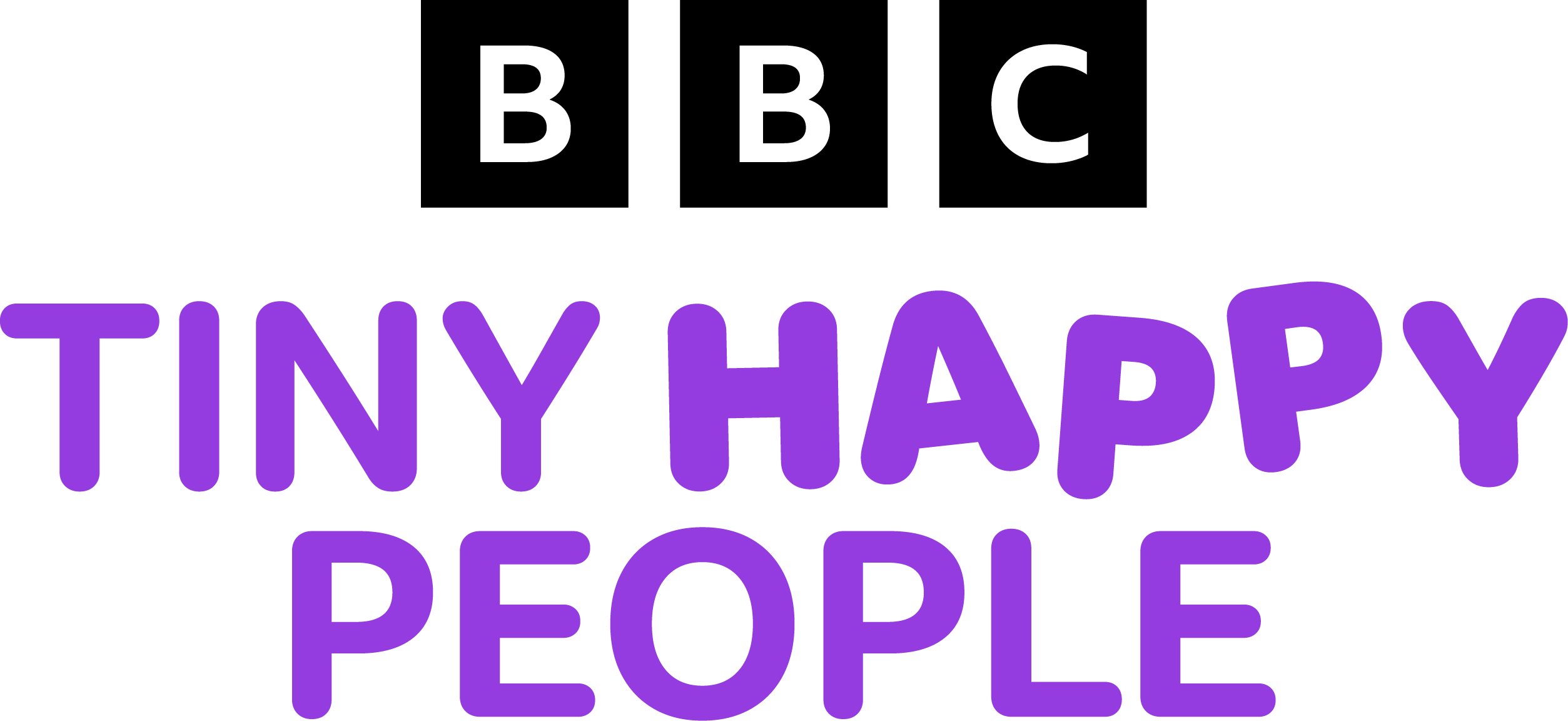ELIM-I Measure and Intervention Resources
The ELIM-I process has 3 main steps- Assessment, Conversation and Intervention. For parents/carers these steps begin with a preparation stage, and end with review of progress for families who receive additional support through intervention.
For each step of the ELIM-I there are supporting resources for parents/carers and practitioners, which include printable materials and supporting BBC Tiny Happy People videos, which are also linked via QR codes throughout the printable materials for parents/carers.
Resources for each step may be found within the dropdown sections below.
Resources
Overview of the ELIM-I process
.jpg)
Preparation for families
To prepare families for the ELIM-I we have created 2 template documents that local teams may edit to their own requirements: information about the ELIM-I that may be inserted into the personal child health record (Red Book), and an Invitation to the Review template.
This preparation stage supports parents/carers to have clear expectations of the review, to feel prepared to complete the ELIM-I measure and understand its purpose, and to feel ready to ask questions and voice any concerns.
Preparation resources:
Personal Child Health Record Information
Healthy Child Review Invitation
Step 1: Assessment
The ELIM-I measure will provide an indication as to whether the child may have a speech, language and/or communication need. Early identification aims to ensure that no child's needs are 'missed' or go undetected. The ELIM-I measure should be completed with the parent/carer during the review, allowing practitioners to support any questions or concerns the parent/carer may have.
The measure should be used in conjunction with the guidance handbook.
Assessment resources:
Step 2: Conversation
To support the conversation between practitioner and parent/carer we have developed some conversation topics that practitioners may follow. These may be found within the ELIM-I Guidance Handbook and ELIM-I Practitioner Guide.
Conversation resources:
Outcome
For some families you will want to consider further support and you will move to Step 3: intervention. For others the child will be developing well and the family will have no concerns, in these cases you will give the family the Universal Talking Together booklet. The aim of this booklet is to raise awareness of early language development to all families and to act as a safety net for any children who may have been missed by the ELIM-I measure or whose language needs may develop later.
Universal Resource:
Step 3: Intervention
Intervention is tailored to meet the needs and circumstances of the family. Intervention is collaborative between the parent and practitioner, and aims to increase parent’s understanding of responsive interaction and why this is important for their child.
Early intervention offers an opportunity to support the child's language development; some children will have a language delay and may 'catch-up' with this additional support, whilst others may need further support or meet criteria for local referral to SLT.
Intervention for families should be guided by the ELIM-I Practitioner Guide which provides information about the intervention process.
Shared decision making with families
Goal setting resources for practitioners:
Goal Setting Super Communicator Tip Cards
Goal Setting Together Time Cards

Tailored support for families
Intervention resource:
Targeted How to be a Super Communicator Booklet

Review
After practitioners have delivered the intended number of intervention contacts, a review of the child's progress should be completed around 2 months later. Intervention may continue for children who are still in need of support and/or practitioners should consider whether the child meets local criteria for onward referral to speech and language therapy support.
This review is important as it allows practitioners to review progress in the child's language development, as well as the parent/carers use of the Super Communicator tip(s) (and change or re-model if necessary).
Practitioners should be guided by the ELIM-I Practitioner Guide about the review stage.
Review resources:
Additional Materials- signposting, messaging and poster
In addition to core ELIM-I resources are additional supporting materials that teams may tailor to their own locality; these are 2 signposting leaflet templates (toy/book libraries and toddler groups/childcare).
Signposting supports parents/carers to access to local community resources that may benefit their child's development and their own wellbeing. Practitioners may explore parent's/carer's access to these resources as part of the 'Step 2: Conversation'. Singposting leaflets may be used at practitioner's own discretion if they feel the family would benefit.
Signposting Resources:
Please edit and tailor these resources to your own locality
Signposting Toy and Book Libraries
Signposting Local Play Groups and Childcare

Messaging Resource:
Pre-prepared text messages about Super Communicator tips may be used in text services or parent-facing apps should local teams use these. Messaging provides an opportunity to frequently remind and prompt parent's/carer's to use the Super Communicator tips within their everyday activities.
ELIM-I Poster
We have created an ELIM-I Super Communicator poster which can be used in any setting to promote the Super Communicator tips to families and to practitioners! Download the poster and display wherever appropriate, for example this may be in clinics, child development/family hub centres, education and childcare settings, GP surgeries... etc.







-150x52.png)